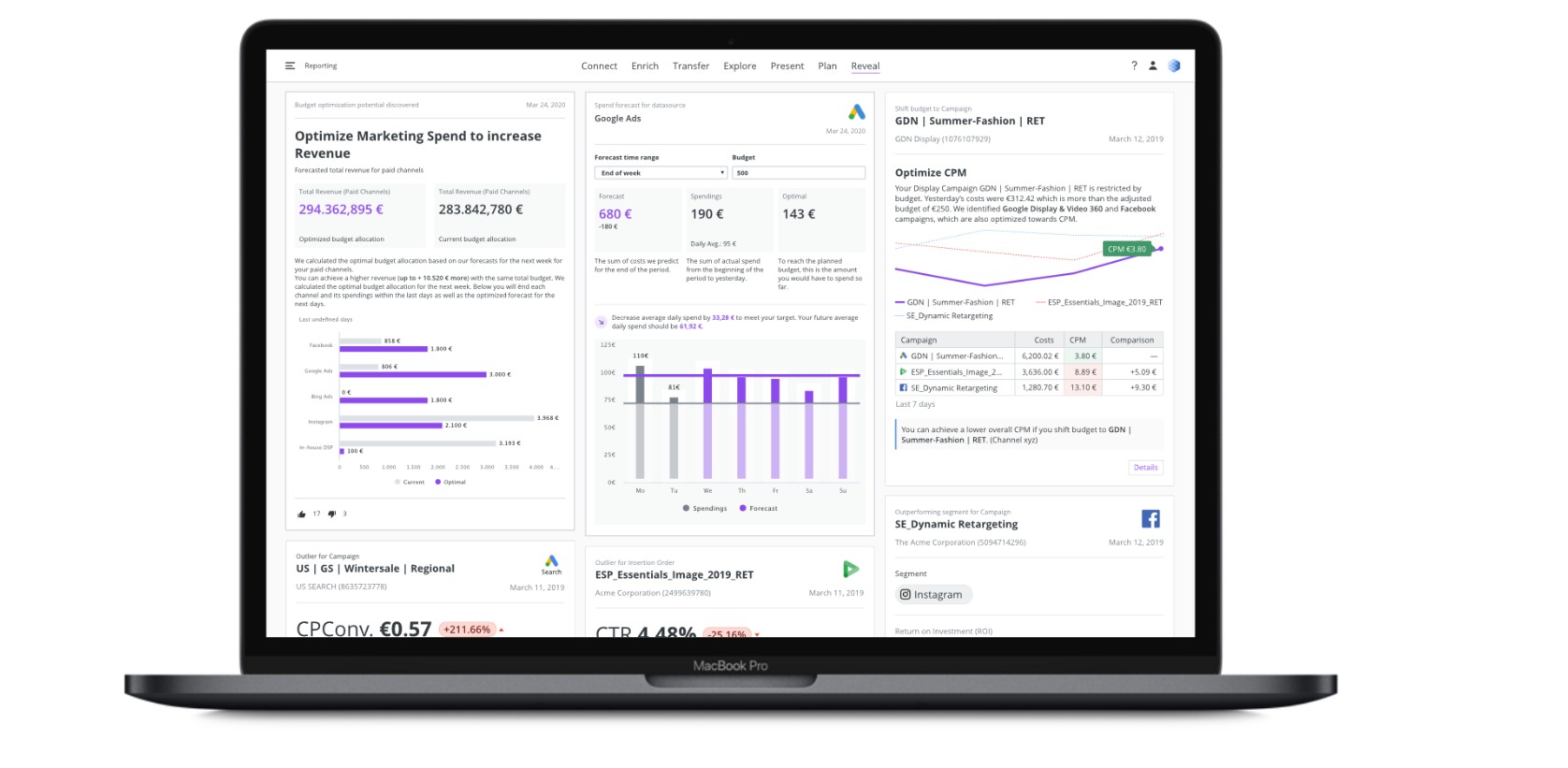12 min to read
The digital revolution has opened up opportunities. Transformed the way businesses operate. With the rapid advancement of technology organizations have had to adjust their strategies in order to stay competitive. Whether its implementing a channel approach harnessing the power of big data analytics or utilizing custom software solutions. Businesses are realizing the importance of keeping up with technological advancements to maintain a competitive advantage. In this blog post we will delve into how companies have adapted their strategies and tactics to not succeed but gain an edge in this ever changing digital era.
How businesses have evolved their strategies to keep up with digitization
As technology has evolved businesses have had to adjust in order to stay competitive in their industries. The digitization process has greatly changed how companies operate, ranging from their marketing and product promotion methods, to how they handle operations and employee workflows. To keep up with these changes businesses have had to reconsider their approaches and embrace technologies and tools. For instance many companies have shifted their marketing efforts towards platforms like media and email campaigns while others have invested in cloud based software systems to streamline workflows and enhance productivity.
It is evident that businesses capable of keeping pace with digitization will be better positioned for long term success in todays paced and highly competitive economy. From payroll management systems to data analytics tools businesses are making substantial investments, in technology to drive growth and maintain a competitive edge. From an all in one payroll management system to advanced data analytics tools, businesses are investing heavily in technology to drive growth and stay ahead of the curve. It's no longer enough to simply have a website or social media presence – businesses must continuously evolve and adapt their strategies in order to thrive in the digital era.
The use of technology to reduce costs and increase efficiency
In todays business landscape it is essential for companies to stay updated with the advancements, with the latest technology, in order to maintain efficiency and cost effectiveness. The integration of technology has completely transformed how businesses operate providing them with the ability to automate tasks streamline operations and cut down on expenses. Exploring the potential of technology, as a means to reduce costs and enhance efficiency has become an undertaking for companies aiming to gain an edge. With the progress in technology businesses can now automate actions, enhance communication channels and access real time data analysis, for making well informed decisions. By harnessing the power of technology organizations can optimize their processes minimize errors and boost productivity—ultimately helping them achieve their business objectives successfully.
The advantages of connecting with customers through digital channels
It is crucial for businesses to harness the potential of platforms in order to effectively engage with their customers. There are significant benefits associated with connecting with customers through channels. Firstly platforms, like media and email allow businesses to quickly and cost effectively reach an audience. Moreover these digital channels offer convenience to customers enabling them to interact with businesses on their terms leading to a personalized service that customers appreciate. Additionally utilizing channels enables businesses to gather insights, into customer behavior and preferences which can be used to refine marketing strategies. Therefore connecting with customers through channels presents an opportunity for businesses to enhance customer engagement, foster brand loyalty and improve financial performance.
The rise of platforms, along with advancements in AI and technology, has completely transformed the way businesses interact with their customers. As experts in harnessing these channels we recognize that these technological breakthroughs greatly enhance our ability to establish more personalized connections.
For example AI is revolutionizing customer interactions by offering tailored experiences. Think of chatbots that can instantly provide customer service or AI-powered data analytics that predict consumer behavior enabling businesses to address needs even before customers articulate them. Additionally, augmented reality and virtual reality are creating experiences that change how customers engage with products or services online. The widespread use of smartphones and IoT devices means that customers are constantly connected, resulting in a presence. This continuous connectivity allows for real-time feedback and engagement, bridging the gap between businesses and consumers like never before.
However as these digital channels continue to flourish there is a growing need for responsibility. Data privacy, transparency and security become considerations as customers become more aware and concerned about how their data's utilized. We, at Codedesign greatly benefit from its AI team, which enhances its proficiency in marketing. The team has played a role, in leveraging AI driven tools to streamline and elevate marketing efforts for a range of clients.
One tool that has gained popularity recently is ChatGPT. By integrating ChatGPT into customer service portals businesses can provide real time support without the need for a team. However, it's not just about incorporating AI; it's about doing it. At Codedesign the AI team ensures that these chatbots are trained with industry data enabling them to handle queries specific to each business sector. In addition to chat tools AI powered data analytics also hold importance. For instance when businesses aim to identify patterns in user behavior or predict market trends AI algorithms can analyze data faster and more accurately than methods. Codedesigns expertise in analytics showcases how businesses can leverage amounts of data to forecast consumer behavior and shape real time marketing strategies.
Codedesigns AI team excels in marketing, by utilizing AI technology to track user interactions. This enables businesses to offer targeted product recommendations tailored specifically for customers. Based on an analysis of users previous behavior AI has the ability to suggest products that align with their preferences leading to a likelihood of sales. The efforts made in eCommerce marketing serve as evidence of this approach.
Nevertheless, as AI becomes more prevalent there is also a need, for handling of data. Codedesign prioritizes the use of user data to enhance experiences while respecting privacy regulations. It's not about staying at the forefront of technology; it's, about doing responsibly and sustainably.
Our work in the field of AI, which is exemplified by their AI team showcases a rounded combination of embracing technology, industry knowledge and ethical considerations. This ensures that businesses not succeed in the era but also do so with responsibility.
The potential for using artificial intelligence in business operations
Companies are constantly exploring newer and smarter technologies to streamline their operations and stay ahead of the competition. Artificial intelligence, for instance, has emerged as a game-changer that promises to optimize business processes, automate tasks, and enhance decision-making capabilities. By leveraging AI-powered analytics tools and algorithms, companies can leverage vast amounts of data to gain insights into their customers, market trends, operational efficiencies, and more. Furthermore, AI can help organizations personalize their services, predict outcomes, and reduce reliance on manual labor. While the potential benefits of AI are clear, assessing its viability and implementation can be a daunting task. Companies must carefully evaluate their technology and infrastructure requirements, ensure ethical and transparent use of data, and develop robust governance policies to maximize the potential of artificial intelligence in their business operations.

In todays paced business landscape embracing transformation has become essential for companies to stay competitive and achieve success. As our world becomes increasingly interconnected staying ahead of the curve requires taking calculated risks and exploring ways to integrate technology into business practices. From utilizing customer data, for targeted marketing campaigns to streamlining operations through automation and engaging with customers through channels digital transformation offers an opportunity for businesses to gain valuable insights while minimizing costs. By investing in the strategies and technologies organizations can unlock opportunities in this ever evolving economic environment. Now is the time to unleash your creativity and be part of this revolution. Don't miss out on the chance; commit today to charting a path with digital transformation, as your trusted companion.
Utilizing AI analytics tools to analyze data presents opportunities, for businesses in terms of fostering customer loyalty and building strong relationships. Below is an exploration of how data analytics can revolutionize these aspects.
AI powered analytics tools empower businesses with a comprehension of their customers. Unlike tools that merely reveal what customers purchase AI enables us to understand the underlying reasons. By examining patterns sentiment analysis and other factors businesses can uncover insights into their customers motivations, desires and pain points. This understanding holds significance since addressing core desires and alleviating pain points lies at the heart of retaining customers. For example if data indicates that a group of customers abandon their shopping carts upon discovering shipping costs it becomes evident that shipping costs pose an obstacle. Armed with this knowledge companies can experiment with offering shipping promotions and gauge the impact, on cart abandonment rates. This proactive approach fueled by AI analytics has the potential to greatly enhance customer retention rates.
AI analytics tools enable businesses to identify disengaged customers before they churn or leave entirely. By monitoring changes, in how customers make purchases interact with products or engage with a brand AI technology can identify those customers who might be considering switching to a competitor. With this knowledge in hand businesses can step in. Take action by offering personalized deals, tailored content or reaching out to win back these customers.

When it comes to nurturing customer relationships, AI driven data analysis plays a role in personalizing interactions. Every point of contact can be customized based on customer data ensuring that communication feels intimate and relevant. For instance of sending mass emails with the same promotions to all customers AI can analyze past purchasing patterns and browsing behavior to send personalized product recommendations that align with each customers interests. AI analytics enable customer segmentation. Of using categories for grouping customers together micro segments are formed based on nuanced behaviors and preferences. This level of segmentation allows for targeted marketing campaigns where customers receive the information and offers that truly matter to them. Not does this enhance conversion rates. It also fosters a stronger sense of trust and connection, between the brand and the customer.
AI analytics tools offer businesses data analysis capabilities that enable an understanding of their customers.By implementing these insights companies can cultivate connections guarantee tailored engagements and enhance customer loyalty. In todays digital environment having such nuanced comprehension and taking proactive measures can be the differentiating factor, between a committed customer base and missed prospects.
At CodeDesign, the AI team has been at the forefront of harnessing the power of data to drive customer-centric solutions. Their cutting-edge analytics tool goes beyond traditional data metrics. It delves deep into customer behaviors, sentiment, and engagement, offering businesses a holistic view of their customer base.
Imagine understanding not just the 'what' but also the 'why' behind every customer interaction on your platform. When a user engages with a specific product or service, the AI tool by CodeDesign offers insights into the motivation behind that choice. Was it an impulse purchase? Was it driven by a previous search? Or was it influenced by a recent email campaign? Answering such questions can drastically reshape marketing and retention strategies.
For instance, if the analytics tool uncovers a trend where customers are repeatedly engaging with a blog post about eco-friendly products before making a purchase, it's a clear indication of their preference. Businesses can then capitalize on this data by offering more eco-friendly product options or sending targeted emails about green initiatives. Such hyper-targeted strategies, based on real-time data, are now feasible thanks to the innovations brought forward by the CodeDesign AI team.

Furthermore, as the digital realm becomes increasingly interactive, platforms such as chatbots or customer service AI can be trained using this vast data repository. Picture a chatbot that doesn't just answer a query but anticipates questions based on user behavior, offering solutions even before a customer realizes they need them. Such preemptive strategies can be the bedrock of building lasting customer relationships in a digital age.
In essence, with the integration of AI-driven analytics tools developed by the CodeDesign AI team, businesses are no longer shooting in the dark. They have precise, actionable insights that can guide their strategies, ensuring that every decision made is backed by data and geared towards enhancing the customer experience. It's not just about retaining customers; it's about deepening the bond with them.
FAQs - Frequently Asked Questions
How are businesses using data analytics to drive decision-making and improve customer relationships?
Businesses are increasingly leveraging advanced data analytics to inform decision-making processes and enhance their customer relationships. Through the meticulous analysis of data, companies can uncover valuable insights about consumer behavior, preferences, and trends. This intelligence enables businesses to tailor their offerings and communications to meet the specific needs and desires of their target audience, thereby improving customer satisfaction and loyalty. For instance, a digital marketing agency like Codedesign has utilized data analytics to segment audiences and personalize marketing campaigns for clients in various sectors, leading to higher engagement rates and increased ROI. By analyzing customer interactions and feedback across different channels, businesses can also anticipate needs and address issues proactively, further solidifying customer trust and long-term relationships.
In what ways can technology help reduce operational costs and increase efficiency for businesses?
Technology plays a pivotal role in streamlining operations, reducing costs, and enhancing business efficiency. Automation of repetitive tasks, such as data entry, customer service through AI-powered chatbots, and inventory management, significantly reduces manual labor and associated costs. Moreover, cloud computing solutions offer scalable and flexible storage and processing capabilities, eliminating the need for expensive on-premise infrastructure. Digital marketing strategies, including programmatic media buying through DSPs (Demand-Side Platforms), enable businesses to optimize their advertising spend by targeting specific audiences more effectively and with greater precision. These technological advancements not only reduce operational costs but also allow businesses to allocate their resources more strategically, focusing on innovation and growth.
How important is it for businesses to adapt to digital transformations in order to stay competitive?
Adapting to digital transformations is absolutely crucial for businesses aiming to remain competitive in today's fast-paced market. The digital landscape is constantly evolving, with new technologies and consumer behaviors emerging regularly. Businesses that embrace digital transformations can improve their operational efficiency, reach wider audiences through digital channels, and offer enhanced customer experiences. Those that fail to adapt risk falling behind, as they miss out on opportunities to innovate and meet the changing expectations of consumers. For example, Codedesign has helped clients across industries to implement digital strategies that leverage the latest technologies, such as AI and big data analytics, ensuring they stay ahead of the curve and maintain a competitive edge.
What are some challenges businesses face when integrating new technologies, and how can they overcome them?
Integrating new technologies poses several challenges, including resistance to change, lack of expertise, and integration complexities with existing systems. To overcome these obstacles, businesses should foster a culture that embraces change and continuous learning. Investing in training and development can equip employees with the necessary skills to adapt to new technologies. Furthermore, businesses should conduct thorough research and planning before integration, ensuring compatibility with existing systems and aligning new technologies with their strategic goals. Collaborating with experienced partners, such as digital marketing agencies like Codedesign, can also provide valuable insights and support in navigating the digital transformation journey effectively.
How does digital transformation impact the way businesses interact with their customer base?
Digital transformation revolutionizes business-customer interactions by enabling more personalized, efficient, and engaging experiences. With the advent of digital channels, businesses can communicate with their customers in real-time, offering support and services conveniently online. Data analytics allow for a deeper understanding of customer preferences and behaviors, leading to more targeted and relevant communications. For example, personalization algorithms can recommend products or content tailored to individual users, enhancing customer satisfaction and loyalty. Additionally, social media and other digital platforms offer new avenues for customer engagement and feedback, fostering a more interactive and responsive relationship between businesses and their customer base.
Can you provide examples of how companies have successfully adapted their strategies in the digital era?
Many companies have successfully navigated the digital era by reimagining their strategies to leverage online platforms and technologies. For instance, traditional retailers have embraced e-commerce, expanding their reach and offering customers the convenience of online shopping. A notable example includes Codedesign's clients in the hospitality and tourism sector, who have adopted digital marketing strategies to attract global audiences through targeted online advertising and social media engagement. Additionally, service-based industries, such as banking and healthcare, have introduced mobile applications and online portals, enabling customers to access services anytime and anywhere. These adaptations not only meet the evolving expectations of consumers but also open up new revenue streams and growth opportunities for businesses.
What is the significance of data privacy and security in the context of digital business strategies?
In the digital business landscape, data privacy and security are of paramount importance. With the increasing reliance on data analytics for strategic decision-making and personalized customer experiences, businesses collect and process vast amounts of personal information. Ensuring the privacy and security of this data is essential to maintain customer trust and comply with regulatory requirements, such as GDPR in Europe. Data breaches can lead to significant financial losses, legal penalties, and damage to a company's reputation. Therefore, implementing robust cybersecurity measures, adhering to best practices in data management, and transparently communicating with customers about how their data is used and protected are critical components of any digital business strategy.
How do businesses balance the need for technological innovation with the importance of human touch in customer interactions?
Balancing technological innovation with the human touch in customer interactions is critical for delivering comprehensive and satisfying customer experiences. While automation and digital technologies can enhance efficiency and personalization, they cannot fully replace the empathy, understanding, and creativity of human interactions. Businesses can achieve this balance by using technology to handle routine tasks and data analysis, freeing up human employees to focus on areas requiring emotional intelligence and personal attention. For example, chatbots can provide instant responses to common queries, while human agents handle more complex or sensitive issues. Personalized marketing, informed by data analytics, can be crafted with a human touch to resonate more deeply with customers. By integrating technology and human elements thoughtfully, businesses can offer superior customer experiences that leverage the best of both worlds.

About Bruno GavinoBruno Gavino is the CEO and partner of Codedesign, a digital marketing agency with a strong international presence. Based in Lisbon, Portugal, with offices in Boston, Singapore, and Manchester (UK) Codedesign has been recognized as one of the top interactive agencies and eCommerce agencies. Awarded Top B2B Company in Europe and Top B2C company in retail, Codedesign aims to foster personal relationships with clients and create a positive work environment for its team. He emphasizes the need for digital agencies to focus on data optimization and performance to meet the increasingly results-driven demands of clients. His experience in digital marketing, combined with a unique background that includes engineering and data, contributes to his effective and multifaceted leadership style. |

About CodedesignCodedesign is a digital marketing agency with a strong multicultural and international presence, offering expert services in digital marketing. Our digital agency in Lisbon, Boston, and Manchester enables us to provide market-ready strategies that suit a wide range of clients across the globe (both B2B and B2C). We specialize in creating impactful online experiences, focusing on making your digital presence strong and efficient. Our approach is straightforward and effective, ensuring that every client receives a personalized service that truly meets their needs. Our digital agency is committed to using the latest data and technology to help your business stand out. Whether you're looking to increase your online visibility, connect better with your audience, get more leads, or grow your online sales. For more information, read our Digital Strategy Blog or to start your journey with us, please feel free to contact us. |
CodeDesign is leading:
- Digital Agency
- Digital Marketing Agency
- Digital Ecommerce Agency
- Amazon Marketing Agency


Add comment ×